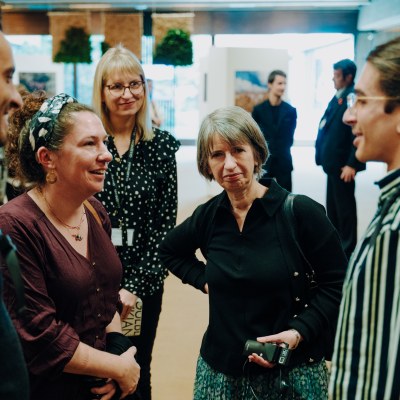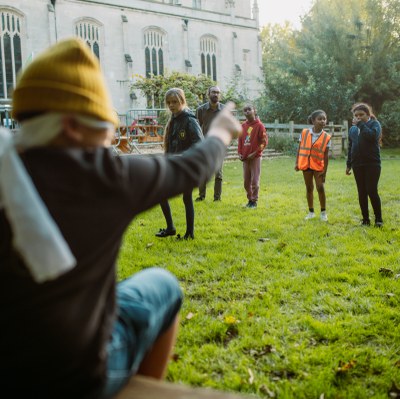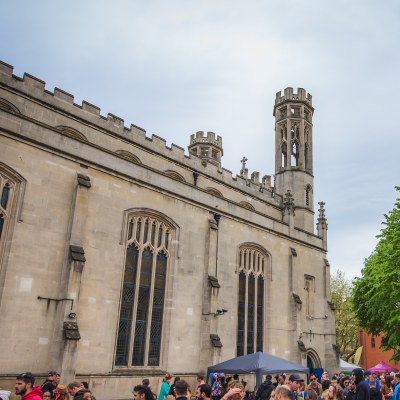Project Respect 2008-10
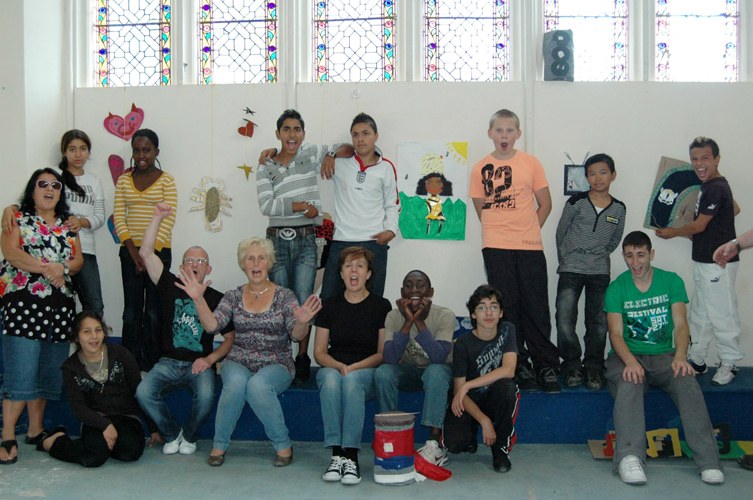
Over two years, the project saw us bringing older and young people together to produce a series of artworks exploring themes around different generations and cultures, funded by the Quartet Community Foundation.
“We don't get any visitors so it is really nice to see young people – we don't really have any activities here and there is not full-time warden so it was nice to create an activity that we can meet the community”. Elder participating in Project Respect, 2010
Project Respect 2008
During the first phase on the project in 2008, we created a mural in the Trinity Gardens.
A group of young people from a range of ethic and cultural backgrounds studying English at the Bristol Academy worked with groups of Elders from Upper Horfield Community Trust, The Golden Ages from Easton Church and local residents from Knightstone Housing Association and the St Pauls area.
These unique workshops are designed to provide a safe space for two generations to meet, share experiences and create artwork together.
Local artist Victoria Appleton who will be delivering the next programme of workshops said; “We are looking at the role of Elders in other societies and in the UK, exploring beliefs and concerns about older and young people.”
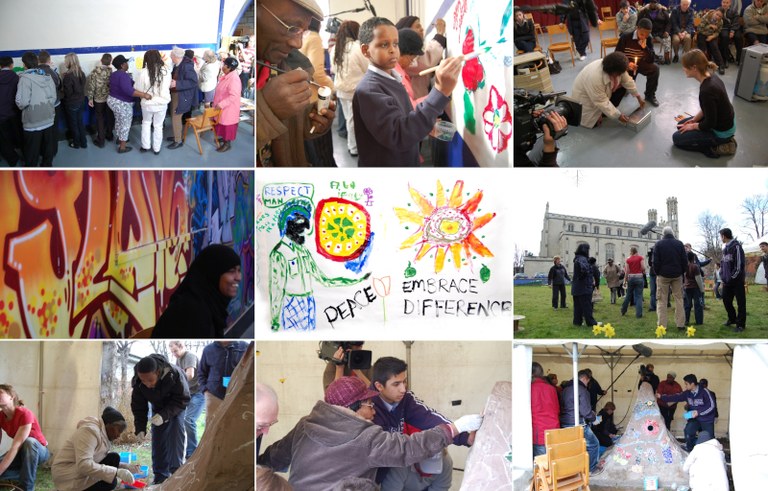
Project Respect 2010
As part of the second intergenerational project in 2010, over 30 participants contributed across the programme – this included volunteers who are unemployed and were looking to gain skills and meet new people.
The biggest achievement was getting two very disparate groups together – older people who were white British with young people from a range of cultures and backgrounds, some of whom didn't speak English. It helped both the young people develop their language skills and the older people to gain a deeper understanding of the complex challenges facing asylum and refugee seeking communities.
What worked particularly well with this project in comparison to past years was we took the young people to work with older people residing in Brunel Care Home in St Georges. While this posed many new challenges, this also meant that we worked with older people who were otherwise not engaged at all with any community activity, unlike past groups of older people we worked with who were already engaged with organised social meeting groups.
The main benefit was the improved communication skills and a better understanding of each others cultures. It gave the older people a chance to share their memories and talk about their experiences and allowed the young people to feel valued and accepted within their new home country.
The community will benefit from the legacy of the project and through other activities shaped alongside this proven model. The prints produced will be on permanent display in Trinity's new lobby area, which will create an improved sense of what Trinity's role is within the area and give a sense that this is an open and inclusive environment.




